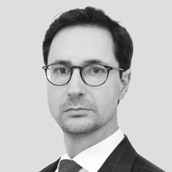
Romain Ligault is a Private Client Advisor at Henley & Partners West Africa.
On a global scale, affluent West African investors can mitigate the limitations imposed on them by their passports by opting for alternative residence and citizenship by investment programs, which allow them to acquire a second passport or residence permit. In so doing, wealthy families can shield their assets and open themselves up to global engagement when it comes to education, healthcare, and lifestyle.
As the Henley Passport Power Index reveals, the economic mobility of African citizens is significantly constrained by the limitations imposed by their passports. In contrast to citizens of more economically advanced nations, Africans face substantial hurdles when it comes to unlocking a greater share of global GDP.
According to the latest Henley Passport Index, none of the countries in Francophone Africa have visa-free access to more than 26% of the 227 destinations available globally. Moreover, the destinations they can access visa-free account for less than 5% of the global GDP. Compare this with countries at the top of the index, like Singapore or Germany, which have access to over 80% of the world and 90% of global GDP visa-free.

In this case, the passport serves as a determinant of financial freedom, impacting individuals' abilities to explore international business ventures, network efficiently, or engage in multinational trade opportunities. Consequently, African entrepreneurs and investors are often left out of lucrative global markets, impeding their potential for economic growth and financial prosperity.
Many countries in Francophone Africa face fluctuating economic conditions due to factors such as commodity price volatility, limited industrial diversification, and reliance on agriculture. These economic uncertainties can threaten the preservation and growth of wealth.
For instance, Côte d'Ivoire, despite being one of the fastest-growing economies in Africa, remains heavily dependent on cocoa and coffee prices, which are susceptible to global market fluctuations. Similarly, Gabon relies heavily on oil exports, making its economy vulnerable to changes in oil prices.
Investment migration provides a hedge against these risks. By obtaining a second passport or residence rights in a stable and economically robust country, families can diversify their investments and secure their assets in more predictable environments. Countries offering investment migration programs, such as Spain or Canada, tend to have more stable financial systems, access to global markets, and favorable business conditions, providing a safer and more lucrative investment landscape.
Many countries in the region experience frequent political unrest, which may result in abrupt policy changes, expropriation risks, and even threats to personal safety. Social instability, driven by issues such as ethnic conflicts, high unemployment rates, and poverty, further exacerbates these risks.
In countries like Cameroon, where there have been ongoing conflicts between the Anglophone and Francophone regions, or Mali, which has faced repeated coups and terrorist threats, the risks are palpable.
A second passport or residence can serve as an insurance policy against political and social upheaval. It grants families the ability to relocate quickly and easily in times of crisis, ensuring their safety and the continuity of business operations. Moreover, it can provide access to countries with robust legal systems and protection of individual rights, offering peace of mind in uncertain times.
African passports generally provide very limited travel freedom and score poorly on the global mobility indices due to their lack of visa-free access. This restricts their ability to take advantage of international opportunities for business, education, and leisure, complicating international dealings and limiting their career and earning potential.
According to the latest Henley Passport Index, visa-free access for citizens of Burkina Faso and Guinea are restricted to 60 and 59 destinations, respectively, worldwide. This can be a major obstacle for business leaders needing to travel frequently to global financial hubs like New York, London, Frankfurt, or Singapore.
In contrast, acquiring residence or citizenship of a country with a high-ranking passport and greater travel freedom, such as Portugal (which offers a pathway to citizenship) or Antigua and Barbuda, with access to 189 and 152 countries visa-free, respectively, can dramatically enhance both your global mobility and economic prosperity. These passports can facilitate ease of travel for business purposes, open opportunities for children’s education in top-tier institutions worldwide and enhance the overall quality of a family’s life.
For wealthy families, ensuring access to world-class education and healthcare is a top priority. Many countries in Francophone Africa face challenges in providing high-quality education and healthcare services due to limited resources, inadequate infrastructure, and ongoing brain drain. This can hinder the long-term prospects and well-being of family members.
For instance, the healthcare system in countries like Niger or Chad is often underfunded and lacking in modern facilities. Education systems in many French-speaking African countries may also struggle with overcrowded classrooms and limited access to advanced learning resources.
Investment migration program options include countries with world-class education and healthcare systems. By securing residence in countries like Switzerland or the United Kingdom, families can ensure access to top-tier educational institutions and healthcare facilities, thereby investing in the future of the next generation and the health of their family members.
A portfolio of citizenship and residence rights that provides access to a wide range of jurisdictions across the world can also open doors to diverse business and investment opportunities. Many countries with investment migration programs have thriving economies with favorable business environments, including low tax rates, robust legal protections for investors, and access to international markets.
For wealthy families in Francophone Africa, this can mean the ability to diversify their business interests, invest in new ventures, and expand their global footprint. It also offers the potential for significant financial returns and the ability to engage in business activities that might not be possible within their home countries due to regulatory or infrastructural limitations.
For example, a business owner from Senegal may find more favorable conditions for expanding a tech startup in Estonia, which offers a conducive environment for tech enterprises and access to the EU market.
By securing alternative citizenships and residence permits, affluent families can protect their wealth, improve their personal safety, enhance their global mobility, and access better education and healthcare. In an increasingly interconnected and unpredictable world, investment migration is not just a luxury but a prudent and necessary consideration for safeguarding your future.